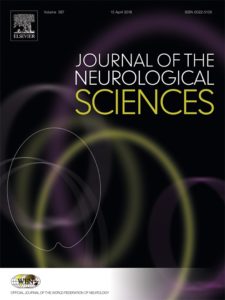Objective: Concussion is a major public health problem and considerable efforts are focused on sideline-based diagnostic testing to guide return-to-play decision-making and clinical care. The King-Devick (K-D) test, a sensitive sideline performance measure for concussion detection, reveals slowed reading times in acutely concussed subjects, as compared to healthy controls; however, the normal behavior of eye movements during the task and deficits underlying the slowing have not been defined.
Methods: Twelve healthy control subjects underwent quantitative eye tracking during digitized K-D testing.
Results: The total K-D reading time was 51.24 (±9.7) seconds. A total of 145 saccades (±15) per subject were generated, with average peak velocity 299.5 degrees/sec and average amplitude 8.2 degrees. The average inter-saccadic interval was 248.4 msec. Task-specific horizontal and oblique saccades per subject numbered, respectively, 102 (±10) and 17 (±4). Subjects with the fewest saccades tended to blink more, resulting in a larger amount of missing data; whereas, subjects with the most saccades tended to make extra saccades during line transitions.
Conclusions: Establishment of normal and objective ocular motor behavior during the K-D test is a critical first step towards defining the range of deficits underlying abnormal testing in concussion. Further, it sets the groundwork for exploration of K-D correlations with cognitive dysfunction and saccadic paradigms that may reflect specific neuroanatomic deficits in the concussed brain.
Summary Points:
- There is a concussion epidemic among athletes, and this extends to military personnel and other population groups.
- Given the widespread distribution of the visual pathways throughout the brain, a sideline test incorporating vision may aid in the diagnosis of concussion.
- The King-Devick (K-D) test, a rapid vision-based performance measure of rapid number naming, has been examined in a range of athletes at different ages and may be useful in the identification of concussion.
- Any worsening of baseline K-D test time at the time of an injury indicates a 5x greater risk of concussion.

